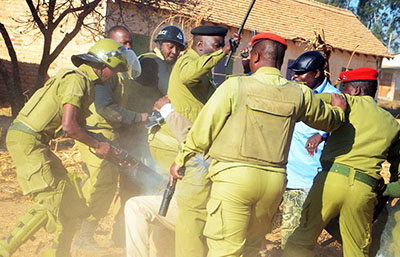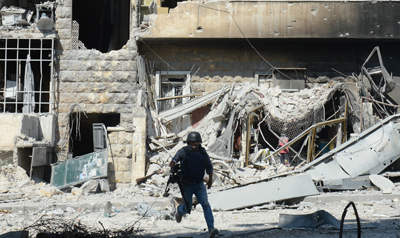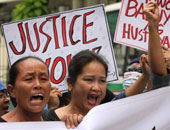Nairobi, September 30, 2013--The Committee to Protect Journalists condemns a decision by Tanzanian authorities to suspend two leading private Swahili dailies on accusations of sedition. The government issued a statement on Friday suspending Mwananchi and MTanzania for 14 and 90 days respectively.

Committee to Protect Journalists
Tanzania
Invisible plight of the Tanzanian press
CPJ Special Report | Itika Mwangosi at the grave of her husband, Daudi. (Gustav Chahe)The Tanzanian government enjoys good international publicity for transparency, but news of public discontent is not being heard. A spike in anti-press attacks is sowing fear and self-censorship among journalists. A CPJ special report by Tom Rhodes

The African Union's special rapporteur on freedom of expression and access to information, Commissioner Pansy Tlakula, has launched an auspicious initiative in East Africa to counter criminal defamation and sedition laws. Since independence, authorities and business interests in the East and Horn region have used criminal laws on sedition, libel, and insult--often relics of former, colonial administrations--to silence their critics in the press. "Criminal defamation laws are nearly always used to punish legitimate criticism of powerful people, rather than protect the right to a reputation," Tlakula said in a statement.
Dear President Obama: Ahead of your first trip to East Africa, we would like to bring to your attention the deteriorating state of press freedom in Tanzania. In your meetings with Tanzanian President Jakaya Kikwete, we ask that you discuss the critical importance of press freedom to economic development and democracy.
The Pan African Parliament's (PAP) launch of a media freedom campaign through a "Dialogue on Media Freedom in Africa" in mid-May marks an important and welcome starting point. For too long, media freedom has been divorced from the debate around development and democratization when it has an integral role to play in promoting transparency, underpinning good governance, and enabling citizens to make informed decisions.
Nairobi, March 7, 2013--Authorities in Tanzania must immediately investigate a vicious attack on a veteran journalist in Dar es Salaam, the capital, on Tuesday night, the Committee to Protect Journalists said today.
A journalist was killed in the line of duty in September, the first Tanzanian work-related fatality documented by CPJ in the 20 years it has kept detailed records. Police attacked veteran TV reporter Daudi Mwangosi, who was shot point-blank with a tear-gas canister and died at the scene, witnesses said. Mwangosi, of the private Channel 10 station, had confronted officers over the arrest of another journalist during an opposition rally, news reports said. The authorities arrested a junior officer in connection with the killing, but they didn’t pursue at least six other officers thought to be associated with the death, according to a report released by the independent Media Council of Tanzania. The government can use 17 repressive, media-related statutes to crack down on critical coverage. Under the Newspaper Act of 1976, the information ministry indefinitely banned the Swahili-language weekly MwanaHalisi in July on vague charges of sedition and false reporting in unspecified articles. The paper’s chief editor, Jabir Idrissa, said he suspected the publication was targeted for its coverage of a physicians’ strike in the country and the abduction and torture of Steven Ulimboka, a doctor leading the strikers. Reports from MwanaHalisi had suggested the authorities were involved in the attack on Ulimboka, but the government denied the allegations, news reports said.
Nairobi, January 9, 2013--A journalist was found murdered in northwestern Tanzania on Tuesday, three days after he went missing from his home, according to local journalists and local reports.
Syrian violence contributed to a sharp rise in the number of journalists killed for their work in 2012, as did a series of murders in Somalia. The dead include a record proportion of journalists who worked online. A CPJ special report





